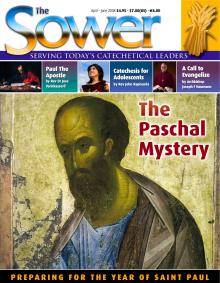Gerard Boylan examines examples of catechisms from both pre-Reformation and post-Reformation periods and finds them more varied than might be expected.
Effective catechesis, as we know, takes account not only of the content of the message to be handed on, but also of the personal circumstances of those being instructed, the situation of the national Church, and a host of cultural factors. Effective catechesis increases knowledge and understanding and thereby strengthens a person’s commitment to an essential assent already given, and this more formal instruction is internalised, and becomes an experienced truth in the circumstances life, when it is reinforced by the habit of prayer, by the example of other Christians whose lives encourage us, by our taking seriously participation in the Mass and the sacraments, by the practice of virtue and the avoidance of evil, by spiritual reading—in other words, by what the General Directory for Catechesis calls ‘on-going formation’ of many kinds.
St Mary’s College, Oscott, the seminary in north Birmingham, in England, is home to a significant Recusant and rare books collection of some 15,000 printed books and pamphlets. Among them are catechetical works dating from the late fifteenth to the early nineteenth centuries. They reflect the changing circumstances of their readers and the life of the Catholic Church in England over a period of some 350 years. Some of them correspond to the accepted definition of a catechism - a summary of principles, often in a question-and-answer format. But the majority are more extensive works, which contain not only a summary of Catholic doctrine, but in addition address the need for the ‘on-going formation’ that lay people needed in circumstances which were often inimical to the practice of their faith.
The rest of this online article is available for current Guild members.
This article is from The Sower and may be copied for catechetical purposes only. It may not be reprinted in another published work without the permission of Maryvale Institute. Contact [email protected]

















